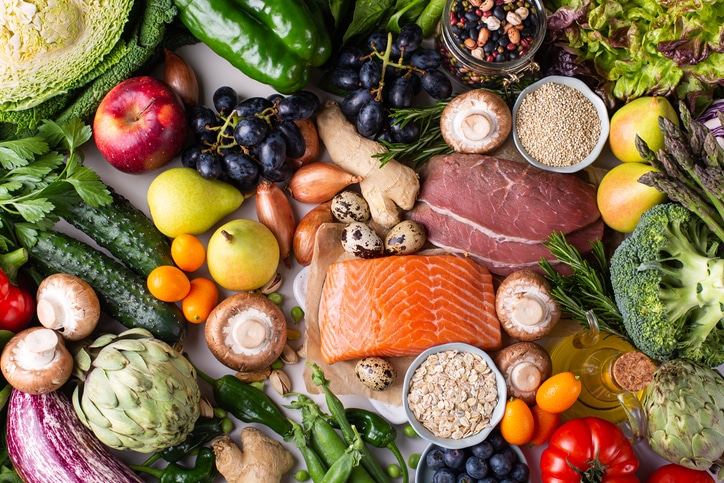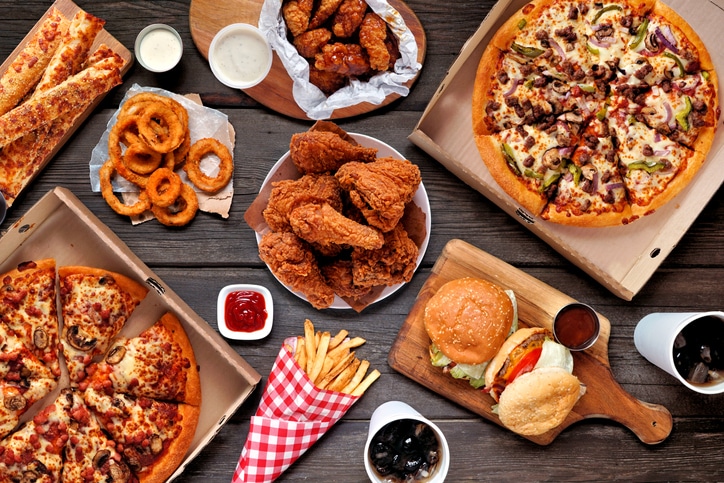Women who are trying to get pregnant may want to shake up their diet because certain foods can boost fertility while others are best to avoid.
“When trying to conceive, it’s all about creating a healthy environment for when the egg and sperm meet,” says Angelica Knickerbocker, MD, OB-GYN on the medical staff at Methodist Dallas. “Following a fertility-enhancing diet can help women achieve and maintain optimal health to provide a better chance for pregnancy.”
That means eating foods that are dense in nutrients and have anti-inflammatory properties if the goal is to boost your fertility. Think fatty fish like salmon and tuna, lean meats like turkey and chicken, and plenty of nuts, fruits, and leafy greens.
“The more variety of fruits and vegetables you eat,” Dr. Knickerbocker says, “the wider array of vitamins, minerals, and antioxidants you will receive.”

MEDITERRANEAN DIET
Following a Mediterranean diet may be the best first course for anyone trying to boost fertility. This colorful diet is packed with fatty fish, lean meats, vegetables, olive oil, nuts, grains, fruits, and legumes.
“This meal plan aims to naturally keep various diseases away and help reduce inflammation in the body, thus improving fertility,” Dr. Knickerbocker says.
She says the diet provides the essential nutrients a mother-to-be needs, including abundant plant-based proteins, anti-inflammatory flavonoids, and vitamins C and E.
Leafy green vegetables like spinach, asparagus, Brussels sprouts, and broccoli contain both iron and folic acid, critical nutrients for pregnant women and those hoping to conceive.
“An iron deficiency has been linked to infertility, low birth weight, miscarriages, and preterm labor,” Dr. Knickerbocker says. “Also, if you don’t get enough folic acid, your baby could be at a higher risk for neural tube defects.”

WHAT FOODS TO AVOID
What you don’t eat may be just as important, Dr. Knickerbocker says.
Cutting down on caffeine can also help, but that doesn’t mean cutting out coffee entirely. Instead, drink coffee in moderation, advises Dr. Knickerbocker, who notes that research is mixed on the subject.
“One large study found that women who consumed 500 milligrams or more of caffeine per day had lower pregnancy rates compared with women who consumed less caffeine,” she says. “Other studies have shown no association between caffeine and IVF or pregnancy outcomes.”
Dr. Knickerbocker advises her patients, whether pregnant or trying to conceive, to aim for 200 milligrams per day. That’s about two 8-ounce cups of homebrewed coffee, or half that if you prefer the coffee shop.
And for those who prefer nicotine to caffeine, know that smoking is one of the worst habits for fertility. That’s because it decreases egg count and damages sperm.
“Smoking ages your ovaries and depletes your eggs prematurely,” Dr. Knickerbocker says. “If you smoke, ask your health care provider to help you quit.”

TAKE YOUR VITAMINS
Whole foods are the best way to provide the nutrients our bodies need, but sometimes we need a little help. That’s where vitamins can pick up the slack.
Prenatal vitamins aren’t only important to take during pregnancy. They’re also important before conception. Dr. Knickerbocker advises taking a prenatal vitamin one to three months before you begin trying to conceive.
Most important of all is folic acid, a B vitamin that can be found in leafy greens, fortified grains, and cereals — but it’s also readily available in the form of a supplement. Just be sure when you buy a prenatal vitamin to check the label first to make sure it contains at least 400 micrograms of folic acid.
Another supplement to seek out is choline, which is found in cow’s milk and other foods but is missing from many prenatal vitamins on the market. DHA is a nutrient to look for in your multivitamin, a fatty acid found naturally in fish.
“This omega-3 fatty acid can help improve cervical mucus quality, which is needed to help the sperm reach the egg,” she says. “It can also help improve the quality of the egg.”
Also consider finding an iron supplement, a critical component for red blood cells because it allows oxygen to be carried throughout our bodies. It can also help prevent ovulatory issues when trying to conceive and help prevent anemia once you are pregnant.
“Iron requirements increase during pregnancy,” Dr. Knickerbocker says, “so taking additional iron supplements before pregnancy is a great way to prepare the mother.”
Dr. Knickerbocker notes that eating the right foods can’t solve every fertility problem. In those cases, talk to your OB-GYN for solutions tailored to each couple — because problems conceiving often involve the male partner.






